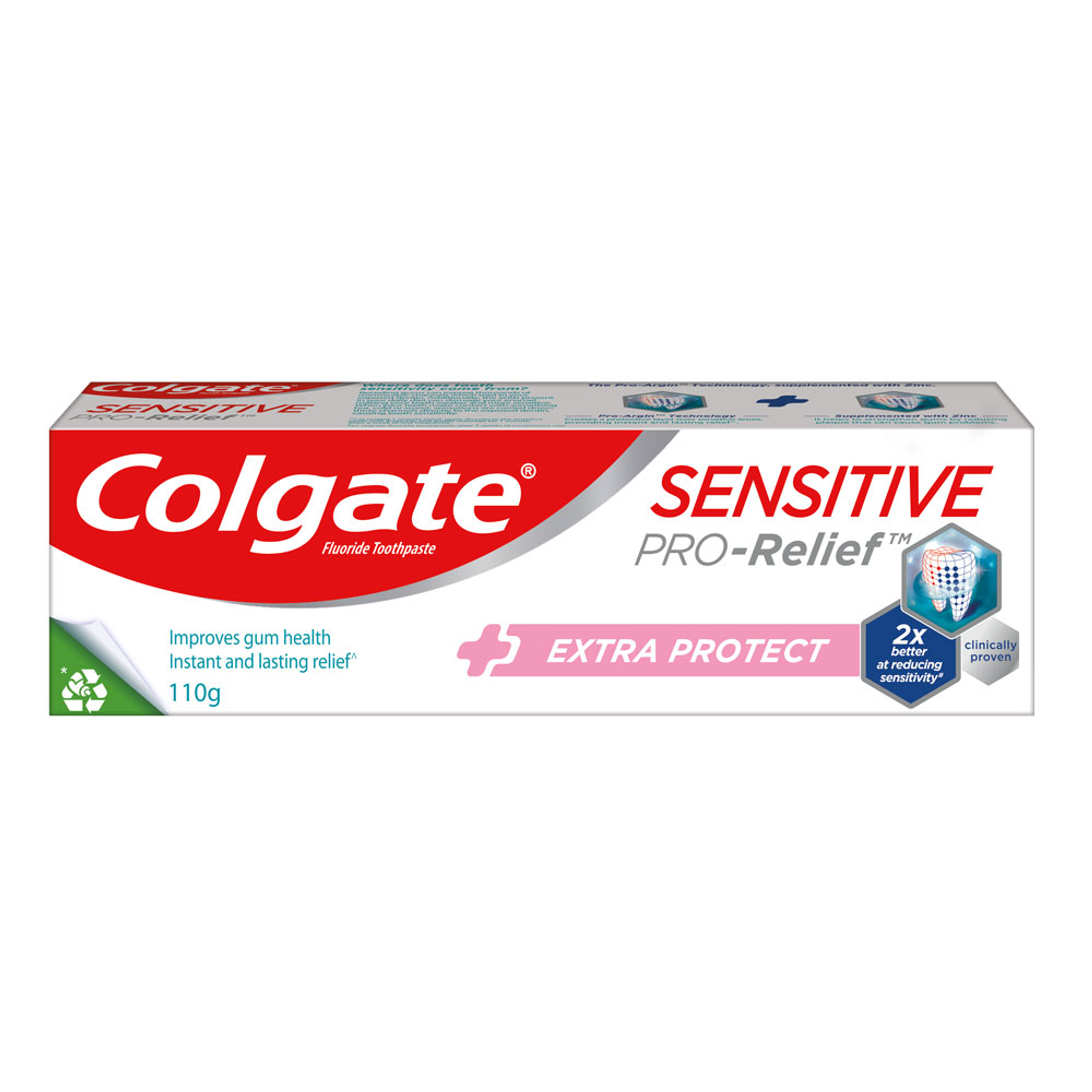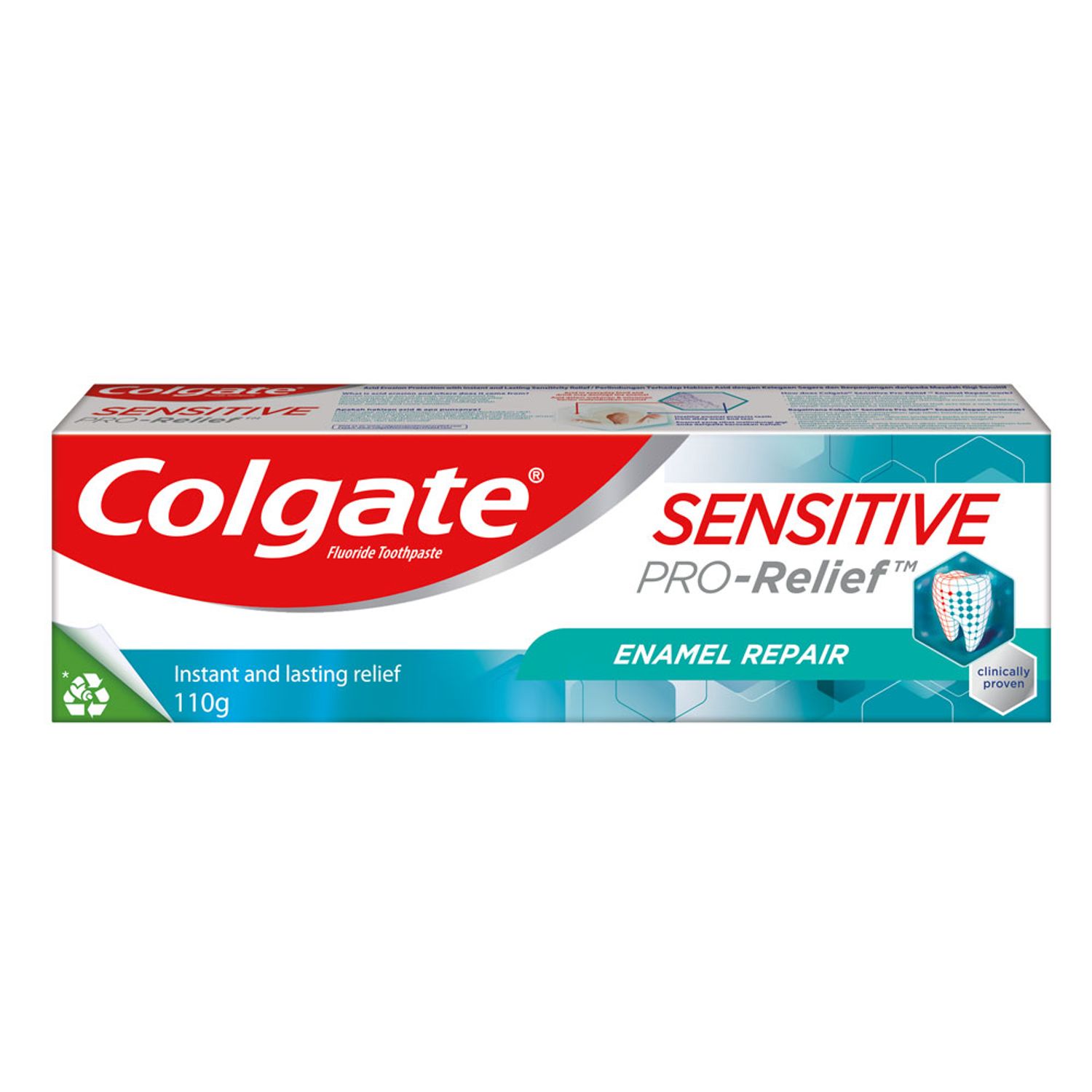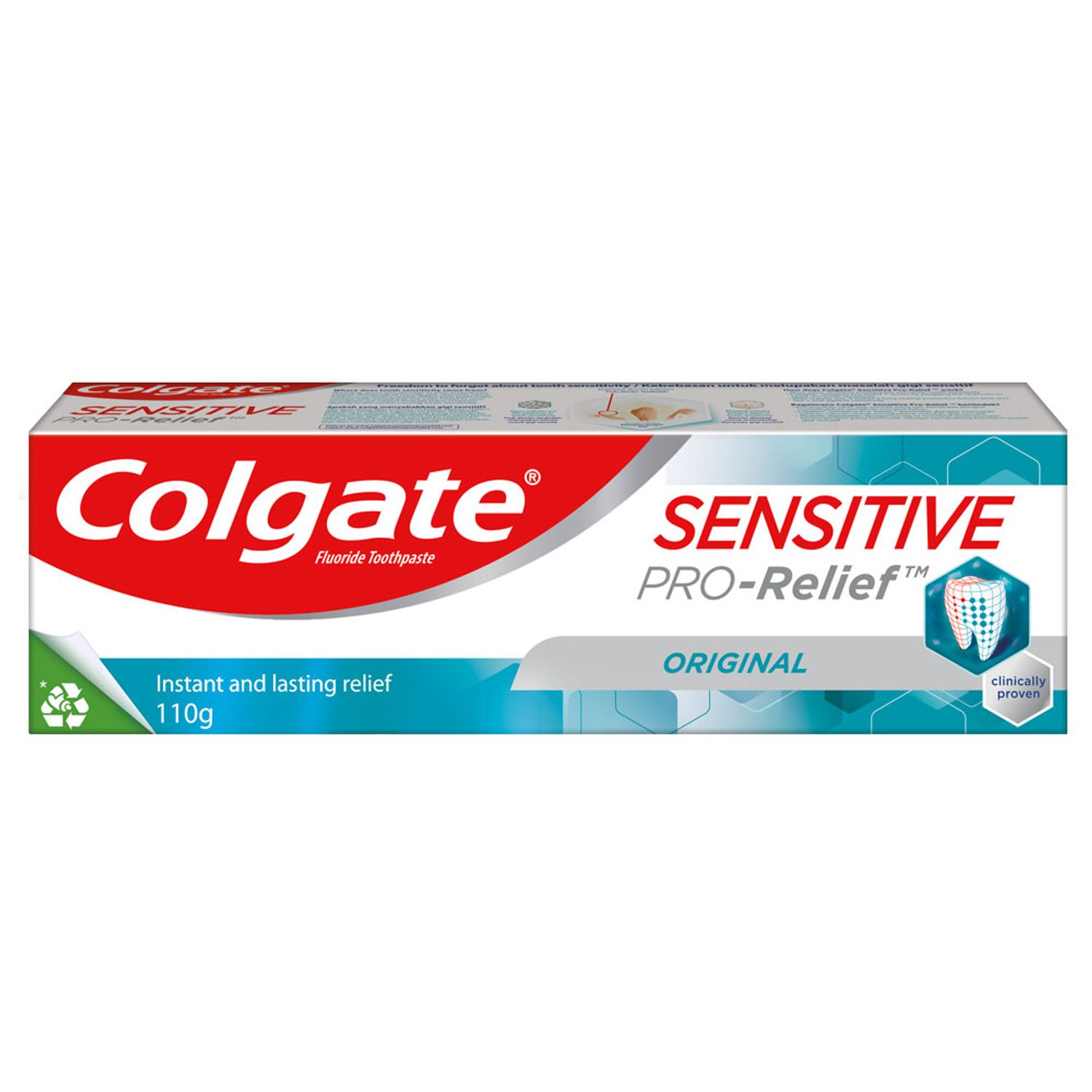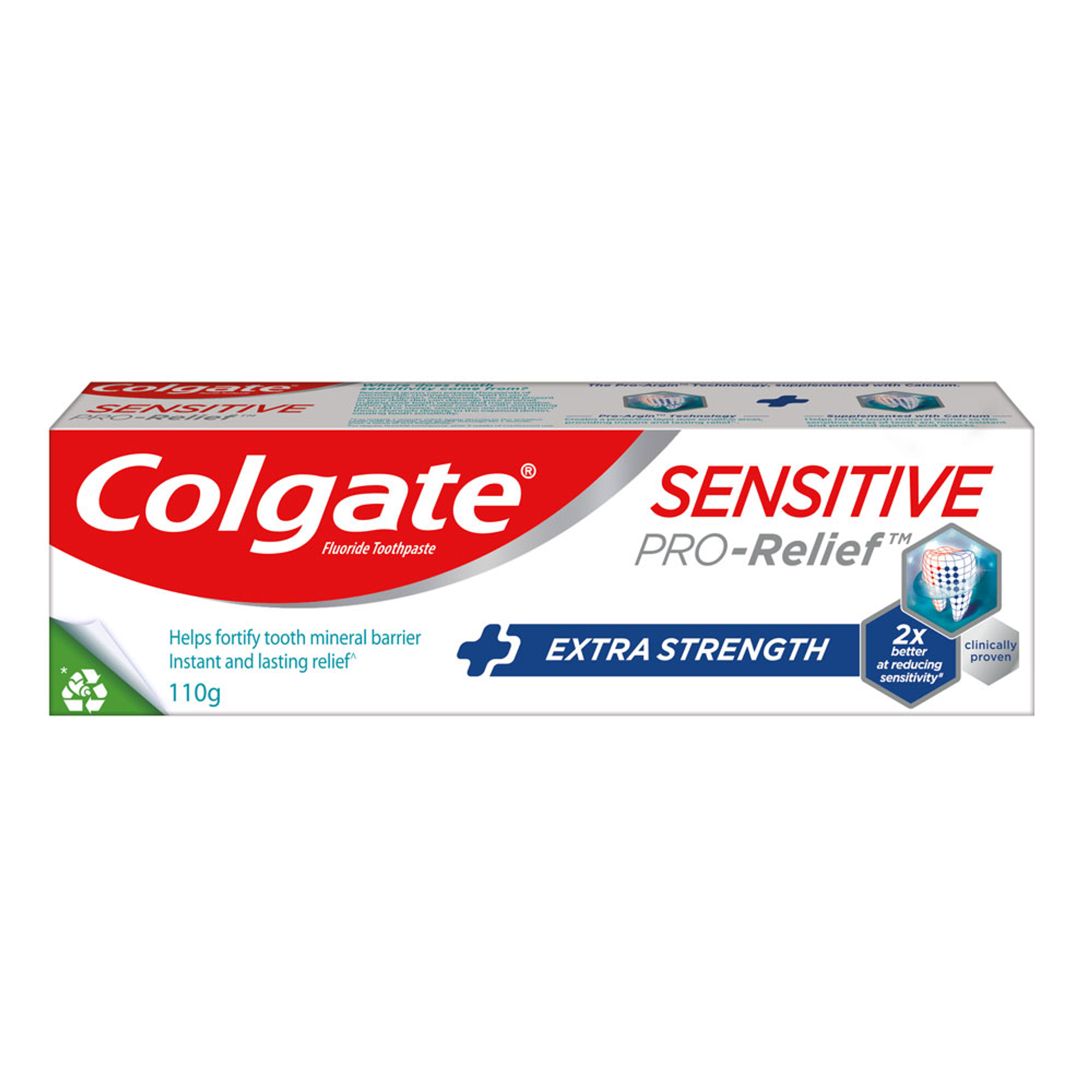-
-

FLUORIDE
Discover how stannous fluoride toothpaste prevents cavities and other oral health issues. Learn the key benefits of fluoride for teeth and its best uses.Fluoride plays a vital role in oral healthcare...

TEETH WHITENING
Teeth Whitening Serum for a Brighter, Confident SmileWho does not want whiter and brighter teeth? Thanks to the many teeth-whitening products available today...
-
Science & Innovation
- ORAL HEALTH ASSESSMENT
- Colgate® | Toothpaste, Toothbrushes & Oral Care Resources
- Oral Health
- The Best Toothpaste for Sensitive Teeth: What's in It?


Brushing with the right toothpaste makes your teeth healthier over the long term, but the best toothpaste for sensitive teeth can relieve your discomfort within two weeks.
Teeth become sensitive when their pulp has little to no protection from temperature changes in the mouth, typically brought on by certain foods. Teeth contain a soft, nerve-filled centre, and a layer of dentine covers the pulp that exists at this level. Over the dentine lies enamel, which covers teeth above the gum, and cementum, which coats your tooth roots below the crown. Here's what to look for to protect these important surfaces:
Enamel Strengtheners
Enamel and cementum protect the inner tooth, but when they erode or break down, the nerves in the pulp become vulnerable. Some people have the misfortune of having naturally thin tooth enamel. Nonetheless, hot, cold, sweet and acidic foods all stimulate the nerves through tubules in dentine that connect to the tooth's surface, causing the pain you might know all too well.
Some causes of eroded or broken-down enamel include decay, brushing aggressively, using a hard-bristled toothbrush, consuming highly acidic foods or beverages, tooth-grinding at night, receding gums and even some dental procedures such as bleaching – though this effect is temporary. For this reason, the best toothpaste for sensitive teeth actually strengthens the enamel and contains ingredients that protect the nerves which hot and cold foods often irritate. Depending on the cause of your sensitivity, however, brushing regularly with a toothpaste that's gentle on sensitive teeth might be all the treatment you need.
Fluoride
The best toothpaste for sensitive teeth should also contain fluoride, which strengthens weak or eroded enamel and helps to prevent early signs of decay from progressing. And although many over-the-counter toothpastes contain fluoride, your dentist can prescribe high-strength fluoride toothpastes to treat tooth sensitivity in particular. Many gel-form products, for example, contain a small percentage of stannous fluoride. Still others contain a dose of sodium fluoride, and both can be prescribed by dentists to help relieve tooth discomfort.
Caring for Sensitive Teeth
If your sensitive teeth are the result of one or more cavities, only a dentist can fix the problem – but you can help treat other causes of tooth sensitivity at home by brushing regularly with a toothpaste for sensitive teeth. You may not be willing to brush sensitive teeth due to the initial discomfort, but over the long term, doing so twice a day with the right toothpaste will reduce your sensitivity. Use a soft-bristled toothbrush, and don't brush too hard. Your dentist may recommend other treatments such as scaling or gum grafts if the condition continues.
When there are toothpastes and other treatments available for a sensitive mouth, there's no need to live with discomfort. In as little as two weeks, you'll be back eating and drinking the foods and beverages you enjoy.
Related Products

Helping dental professionals
More professionals across the world trust Colgate. Find resources, products, and information to give your patients a healthier future











